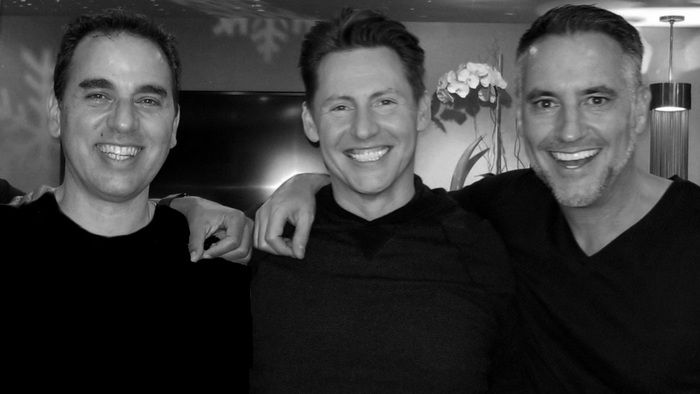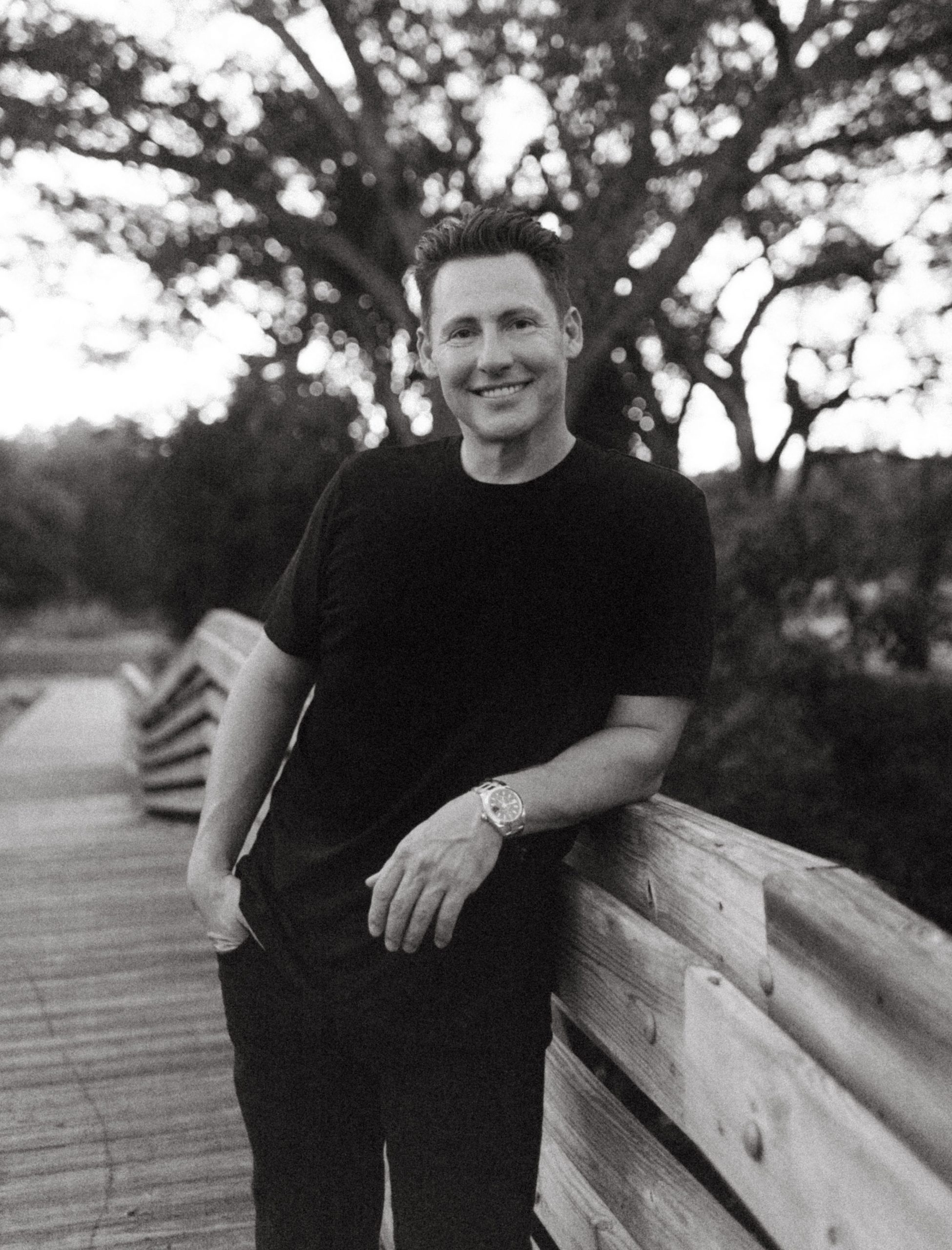When Richard Jardine decided to start the digital time capsule company, Skypod, his purpose was clear. He wanted to ensure that anyone around the world could share messages, pictures, and videos with loved ones well into the future.
As with any technology company, the hours were long and the challenge was significant. However, Jardine’s passion for helping people build connections with loved ones no matter what happened in life propelled him forward.
Today, Skypod’s patent-pending technology has helped Jardine achieve his goal, allowing anyone with an internet connection to create and send digital time capsules, months or even years into the future. Jardine joined me to talk about the origins of Skypod, how digital time capsules work, and how Skypod, its co-founders, and a strong bench of investors and donors are creating opportunities for people to create and send pods regardless of location or financial status.
1. Thanks for spending some time with me, Richard. Let’s start by talking for a few minutes about the origins of Skypod. What was the inspiration behind starting Skypod?
At our core, my co-founders and I all share a desire to help families make deeper, more meaningful connections with each other. Skypod gave us a secure way for people to maintain a connection to loved ones no matter what happens in life.
That desire came from deep within each of us, as we’ve each lost a loved on early in life. For example, my biological father died when I was just two years old. To this day, I have never seen a single photograph of him. Two of my co-founders each lost their mothers to cancer. Each of us have wondered what it would be like if we had an additional connection with our lost loved ones.

CEO/ Founder of Skypod Richard Jardine and Family
Founding Skypod was our way to help others avoid our experiences. We knew our experiences were not unique. Every day, people leave earth too soon, many leaving young children behind. For example, in 2016, I watched an interview of Anderson Cooper and his mother, Gloria Vanderbilt. Anderson lost his father when he was just ten years old. Gloria lost hers when she was only nineteen months old. During the interview, Anderson said he lived with “a fantasy that there was a letter out there somewhere” from their fathers. Anderson said he hoped his letter would contain life advice and tell him all the things he didn’t know about his dad.
But those letters never came. And, for many of us, they never do. But that’s what Skypod does. We help people deliver memories and messages safely and securely no matter what happens in life. We give people the confidence that they can maintain a connection to loved ones in the future, no matter what happens, by creating encrypted and protected digital time capsules that are delivered immediately but locked until a date and time in the future that the creator chooses.
Until Skypod, our choices were limited with respect to how we left memories behind. We could leave them in a shoebox filled with paper that can be lost or destroyed. Or, we could store them in a Dropbox or Google Drive folder that anyone with the link could access right away. Skypod solves both of those problems, protecting precious messages and memories into the future and locking them down until the exact time chosen by the creator, currently up to five years into the future but expanding to ten years in 2021.
2. The digital life was all we had during the pandemic to keep in touch with most of our loved ones. What kind of success did Skypod see during this time?
Skypod has seen a tremendous amount of growth during the pandemic, as people began to focus more of their time and attention to connecting virtually with loved ones. We expect this growth to continue throughout 2021 and well into the future, especially after many older generations grew more comfortable with digital technologies in 2021.
The pandemic showed everyone just how fragile life really is and caused many people to think about all the “what ifs” in their lives and plan accordingly. And, just like the pandemic caused a lot of people to revisit their estate plans to take care of their material possessions, many also turned to Skypod to take care of their messages and memories.
4. Who is the creator of Skypod?
Although I created the concept in 2005, it took a team of dedicated co-founders, team members, investors, and donors to bring it to life. Once I created the concept, I made it my life goal to turn it into a sustainable platform that would allow people all around the world to share memories and messages that matter with loved ones. Although it took several years, eventually, I was able to join forces with my co-founders, Jason Swing, Majd Elias, and Jason Nauman, to fine-tune the concept so it could work seamlessly with new technologies. Together, and with the help of silent investors and donors, we were able to pool their resources and bring Skypod to life.

Skypod Co- Founder Majd Elias (L), Founder/ CEO Richard Jardin (C), Co- Founder Jason Nauman (R)
5. In 2020, your company donated $3 Million in credits to first responders. How did that campaign go?
Our first-responder campaign went exceedingly well. In fact, when the coronavirus pandemic hit, the uncertainty and suffering of so many people motivated Skypod’s leadership team to announce an initial donation of $1 Million in Skypod credits to help first responders, healthcare workers, and coronavirus patients. After we did, the campaign became so popular that we needed to increase the amount rather quickly. Thankfully, we have a great network of donors and their generosity allowed us to triple the donation. Skypod also created a similar $1 Million campaign to help people recently diagnosed with cancer.
Both campaigns are still active. Any first responders, healthcare workers, or coronavirus patients can visitwww.skypod.com/together to receive $100 in free Skypod credits while the campaign is open. Also, people who have been recently diagnosed with cancer can visit www.skypod.com/cancer to receive $100 in free Skypod creditsas part of Skypod’s cancer campaign.
6. How can people join Skypod?
Anyone can create a free account at www.skypod.com. With your free account, you can receive unlimited Skypods and even begin to create Skypods yourself. You only need to pay when you are ready to send a digital time capsule to someone.
Of course, we do still have additional free credits available for first responders, healthcare workers, and patients recently diagnosed with cancer, so people who qualify for those donations can sign up on the appropriate page and create free Skypods using their free credits. With Skypods starting at just $1.99, the free credits will allow each user to create multiple digital time capsules. No credit card required. No strings attached.
Others can sign up for a free Skypod account at www.skypod.com as well. It’s always free to receive a Skypod and you only pay for your time capsule when you’re ready to send it.
Finally, anyone can gift credits to friends or family members at www.skypod.com, too. Skypod is available on any smartphone, tablet, or computer with an internet connection. And for those who cannot afford to send out a Skypod, email our team support@skypod.com and we will do our best to help you. Our customer support agents forward every donation request to me. I read every one personally and, to date, I have never turned someone away who could not afford to send out a pod. We want to make sure everyone can send a Skypod to their loved ones no matter what financial difficulties they may find themselves in.
7. Do you have any other ventures in store for 2021?
We are constantly working to create additional ways for people to use Skypod’s technology. For example, with the growth and popularity we experienced in 2020, several organizations and celebrities have been in contact with us about donating Skypod credits to people around the world. Some want to donate credits to people in their home countries. Others want to donate credits to local communities around the world. And others want to give back to groups with whom they have a special connection, like our cancer patient campaign.
We are very excited about the ways their kindness and generosity will help bring the gift of Skypod to more families in need around the world. And, because many of these credits will be donated by them for use in other countries, it gives us the opportunity to translate our platform into new languages to help even more people protect, preserve, and deliver messages that matter all around the world. As long as you have an internet connection, you can use Skypod.
To keep up with the latest on what we’re doing, you can stay connected with Skypod on Facebook, Instagram, YouTube, LinkedIn, Twitter, and at www.skypod.com.
